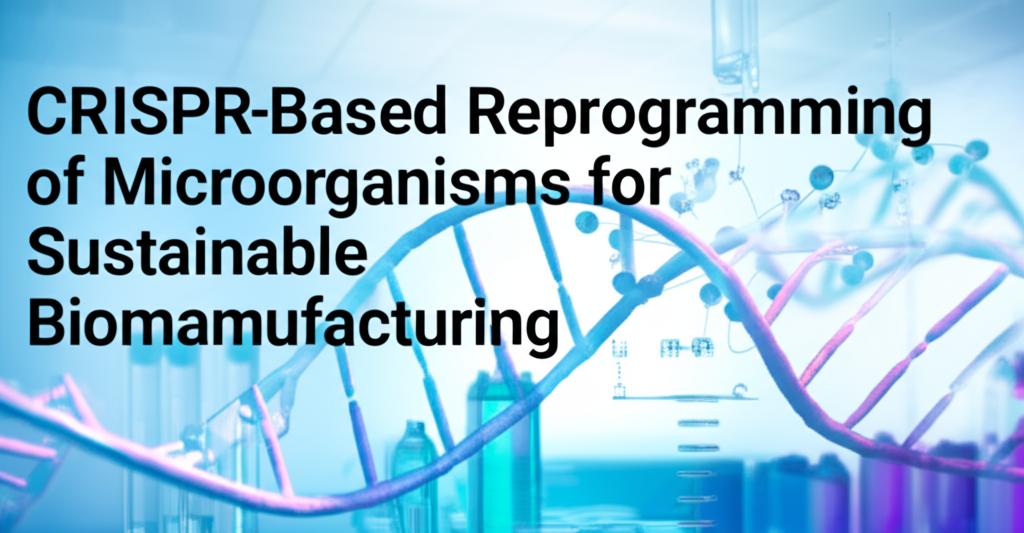The advent of CRISPR-Cas technology has marked a new era in microbial engineering, offering unprecedented precision and efficiency in reprogramming microorganisms for sustainable biomanufacturing. This powerful gene-editing tool is accelerating the transition from petrochemical-based industries to bio-based economies, addressing critical challenges in energy, a healthier environment, and resource management.
At its core, CRISPR-Cas systems allow for targeted modification of microbial genomes. This can involve deleting, inserting, or altering genes with remarkable accuracy. Scientists are leveraging this capability to enhance the production of a wide array of bio-based products, including biofuels, biochemicals, pharmaceuticals, and novel materials. The simplicity, speed, and cost-effectiveness of CRISPR have made it a revolutionary tool in microbial biotechnology.
One of the key applications lies in optimizing microbial metabolic pathways. By precisely editing genes, researchers can redirect cellular resources towards the synthesis of desired compounds, increasing yields and purity. For instance, CRISPR has been instrumental in engineering yeast and bacteria to efficiently produce biofuels like ethanol and biodiesel from renewable feedstocks. It also plays a vital role in developing microbial cell factories for platform chemicals, which serve as building blocks for various industrial products.
Furthermore, CRISPR-Cas technology is being used to improve the robustness of industrial microorganisms. Manufacturing processes often expose microbes to harsh conditions, such as high temperatures, extreme pH levels, or toxic byproducts. Genetic modifications using CRISPR can enhance microbial tolerance to these stressors, leading to more efficient and reliable bioproduction. This includes engineering microbes for bioremediation to degrade pollutants or manage waste streams more effectively.
Recent advancements have expanded the CRISPR toolbox beyond simple gene knockouts. Techniques like CRISPR interference (CRISPRi) and CRISPR activation (CRISPRa) allow for the precise up- or down-regulation of gene expression without permanently altering the DNA sequence. This fine-tuned control is crucial for optimizing complex metabolic networks and cellular functions. Base editing and prime editing, newer iterations of CRISPR technology, offer even greater precision by enabling specific single-nucleotide changes without causing double-strand breaks in the DNA, which can sometimes lead to unintended mutations.
Despite the immense potential, challenges remain. Off-target effects, where CRISPR makes unintended cuts in the genome, are a concern that researchers are actively addressing through improved guide RNA design and modified Cas proteins. Efficient delivery of CRISPR components into diverse microbial species, particularly those that are not traditionally amenable to genetic manipulation, is another hurdle. Moreover, scaling up CRISPR-based bioprocesses from the lab to industrial production requires further optimization and economic feasibility assessments.
The future of CRISPR-based microbial reprogramming is bright. Ongoing research focuses on discovering novel Cas enzymes with different properties, developing more sophisticated regulatory tools, and integrating CRISPR with other synthetic biology approaches. The increasing use of artificial intelligence and machine learning is also aiding in the design of more effective CRISPR experiments and the prediction of editing outcomes. As these technologies mature, CRISPR will undoubtedly play an even more significant role in building a sustainable future through advanced biomanufacturing.

